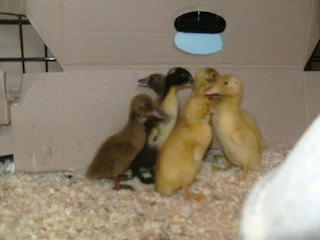 I have been sorting through some of the allotment vegetables this morning and have been preparing shallots for pickling. Repetitive tasks allow the mind to wander somewhat, and I have found myself thinking a little about grief.
I have been sorting through some of the allotment vegetables this morning and have been preparing shallots for pickling. Repetitive tasks allow the mind to wander somewhat, and I have found myself thinking a little about grief.
Now, I am not being morbid here, it is just that one of my friends has just lost his father to cancer and I have recently perused Dia's somewhat interesting blog which is centred around the taboo subjects of death and dying (http://acuriouscure.wordpress.com/ )
I am no stranger to death. Intensive care is not all about the high tech saving of lives. many,many people are admitted to us with completely clapped out old bodies that have no reserves to fight the conditions that assault them. In other words, they are dying.
Some say that admission to us , for many is inappropriate.....I am not getting into that debate, but what I will say that for the majority of dying patients, the one to one nursing ratio on intensive care affords them and their families a better chance for individualised and appropriate end of life care.
I have witnessed immensely moving scenes of grief and I have seen the absurd. The "British" stiff upper lip , the screaming, the crying, the anger and the simply lost and numb, every situation is different and needs careful and mature care....it is a role that I am used to, and it is a role that has perhaps , in the past masked my own experiences of grief.
My father died back in 1990 from a sudden heart attack a month or so after one of my best friend's died in a terrible plane crash and my mother died seven years ago from a sudden exacerbation of a long standing respiratory condition. In all of these cases my various levels and experiences of grief I suspect were dampened by my need to be the "nurse" within the family group. On reflection I know I didn't really bury my grief to a place that would cause me later psychological pain and suffering, I just think that my nursing background prepared me for the health care based experiences I went through.
Having said all this, I have suffered a sudden and devastating grief reaction which came out of the blue and which effortlessly sideswiped all of my known nursing defences. My first dog Finlay, died at the age of 5 back in 2007 and I think I was wholly unprepared for the depth of my grief for a "mere" animal when I had effectively sailed through the grief I felt for my own parents.
My feelings shocked me, but in retrospect I am so glad that they did catch me unawares......for the emotions I felt were pure and uncluttered by the complicated and lengthy relationships we have with our dysfunctional mothers and fathers.
Human relationships with animals are often cleanly defined and accepted. Psychological baggage is just not present and the clarity of affection is well accepted by all.....This honesty is perhaps one of the reasons why animals are such a part of my life.
Sometimes it is not always a good thing being the nurse.









